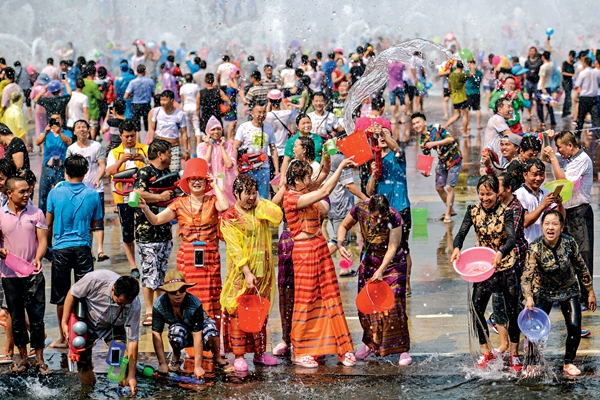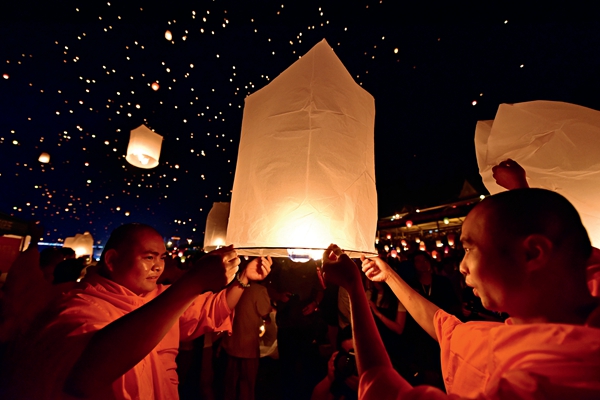Splashing, Dancing and Making Merry at the Dai Water-Sprinkling Festival
China Today, April 26, 2017 Adjust font size:
The Water-Sprinkling Festival of the Dai ethnic group is the most popularly celebrated rite among the ethnic minorities living in Yunnan Province.
This week-long celebration in honor of the Dai Lunar New Year usually falls around mid-April. People of all ages, dressed in their festival best, take part in the solemn ritual of washing statues of Buddha. They later take great delight in generously blessing all and sundry with splashes of water; and in getting together to talk and compare notes about the past year. Evening merry-making activities include watching Dai dramas, performing local dances, and flying kongming lanterns.
|
|
|
The wetter one gets, the more benedictions one may expect. |
Buddha’s Birthday
Also known as the Buddha’s Birthday Festival, the history of this celebration goes back centuries. It originated in India as a religious rite of the Brahman, or priestly, caste, and later became absorbed into Buddhism. The festival was introduced to southwestern Yunnan Province via Myanmar at the end of the 12th century. Buddhism has since been the region’s predominant belief system.
The first day of the festival is celebrated in similar fashion to that of China’s Lunar New Year. In addition to cleaning the house from top to bottom and preparing the family reunion dinner, dragonboat races, setting off Dai-style fireworks, and watching drama, song and dance performances are also customary. The second day is reserved for water sprinkling, which ritually cleanses people of any residual ill fortune lingering from the old year and is believed to bring good health and happiness. The third day is the Dai New Year’s Day, most important of any other festival on the Dai lunar calendar. Sprinkling people with water on this day is believed to purify their hearts in preparation for the coming New Year.
|
|
|
Flying kongming lanterns is a time-honored Dai custom. |
People traditionally fill wooden basins with water and use leafy twigs to sprinkle it gently, first on elders and then others, while uttering sincere wishes for health and harmony.
Younger people use a broader range of containers for the water which they will soon splash over one another while chasing along high streets and through back lanes. Dai people believe that spraying water through the air brings good luck, felicity, and health; also that the wetter one gets, the more benedictions one may expect. The festival is thus a veritable ocean of joy.
Later on, local people join in the festival song and dance activities. Dressed in its finest attire, the community as a whole dances for joy, to the accompaniment of gongs and elephant-foot drums. The air is vibrant with singing and cheering as people make merry through the night.

